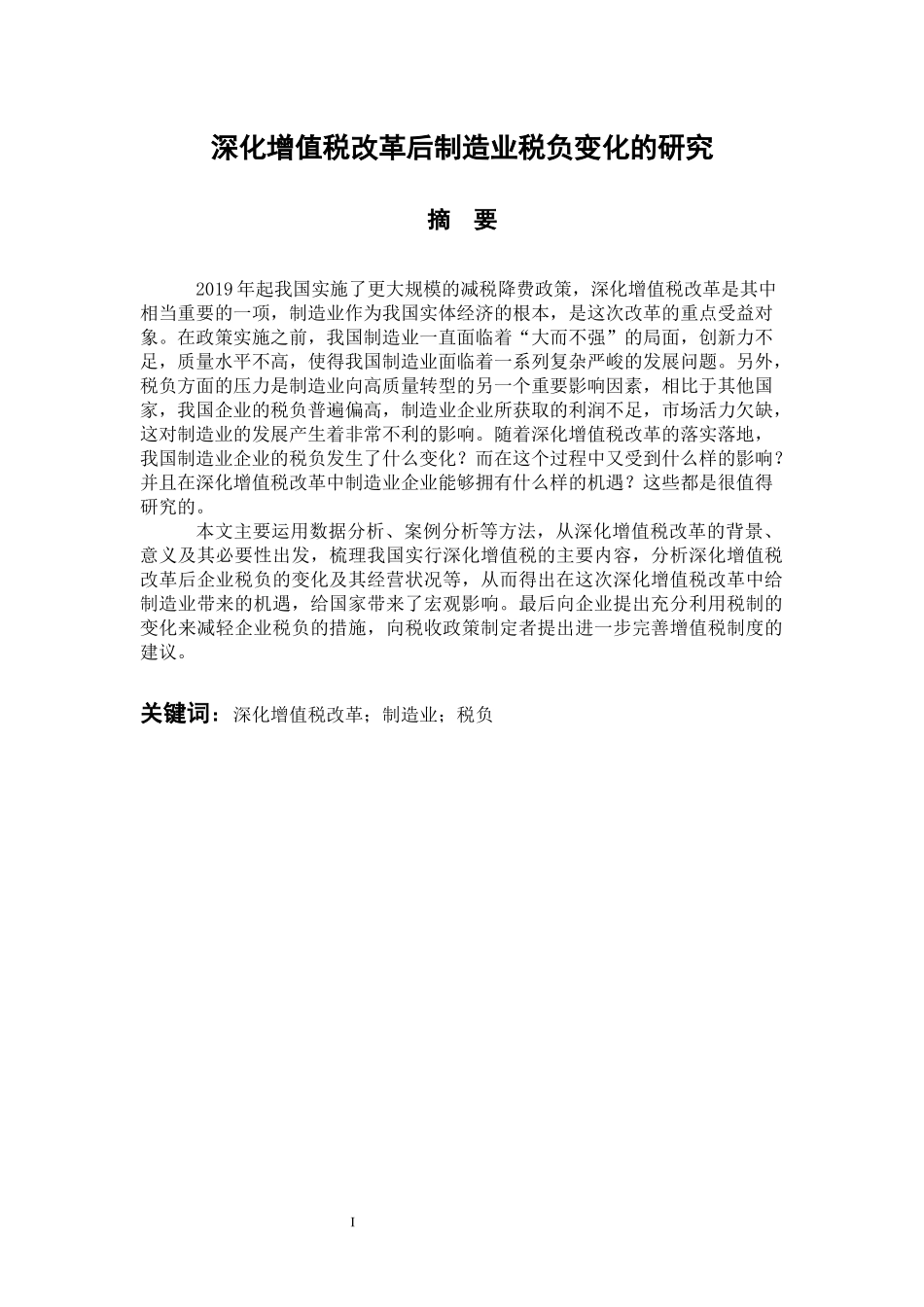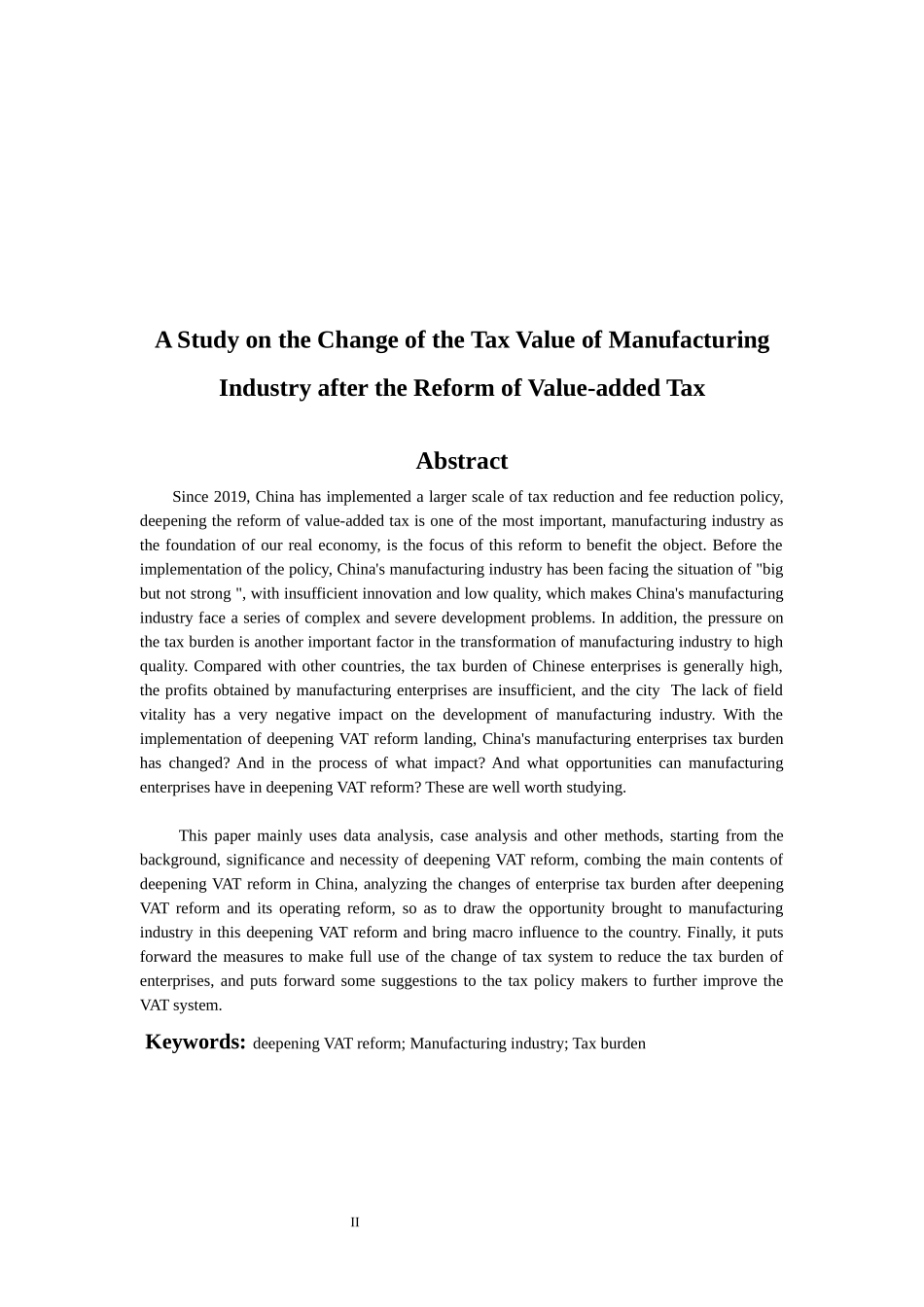I深化增值税改革后制造业税负变化的研究摘 要2019 年起我国实施了更大规模的减税降费政策,深化增值税改革是其中相当重要的一项,制造业作为我国实体经济的根本,是这次改革的重点受益对象。在政策实施之前,我国制造业一直面临着“大而不强”的局面,创新力不足,质量水平不高,使得我国制造业面临着一系列复杂严峻的发展问题。另外,税负方面的压力是制造业向高质量转型的另一个重要影响因素,相比于其他国家,我国企业的税负普遍偏高,制造业企业所获取的利润不足,市场活力欠缺,这对制造业的发展产生着非常不利的影响。随着深化增值税改革的落实落地,我国制造业企业的税负发生了什么变化?而在这个过程中又受到什么样的影响?并且在深化增值税改革中制造业企业能够拥有什么样的机遇?这些都是很值得研究的。本文主要运用数据分析、案例分析等方法,从深化增值税改革的背景、意义及其必要性出发,梳理我国实行深化增值税的主要内容,分析深化增值税改革后企业税负的变化及其经营状况等,从而得出在这次深化增值税改革中给制造业带来的机遇,给国家带来了宏观影响。最后向企业提出充分利用税制的变化来减轻企业税负的措施,向税收政策制定者提出进一步完善增值税制度的建议。关键词:深化增值税改革;制造业;税负 IIA Study on the Change of the Tax Value of Manufacturing Industry after the Reform of Value-added TaxAbstractSince 2019, China has implemented a larger scale of tax reduction and fee reduction policy, deepening the reform of value-added tax is one of the most important, manufacturing industry as the foundation of our real economy, is the focus of this reform to benefit the object. Before the implementation of the policy, China's manufacturing industry has been facing the situation of "big but not strong ", with insufficient innovation and low quality, which makes China's manufacturing industry face a series of complex and severe development problems. In addition, the pressure on the tax burden is another important factor in the transformation of manufacturing industry to high quality. Compared with other countries,...


